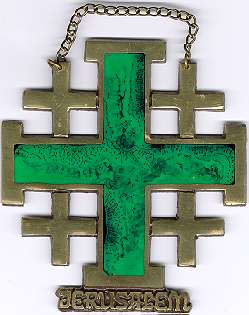|
GLORY |
| Isaiah 6:3: "Holy, holy, holy is the Lord Almighty, the whole earth is full of his glory."Hebrews 1:3: "The Son is the radiance of God's glory and the exact representation of his being."Revelation 4:11: "You are worthy, our Lord and God, to receive glory and honor and power, for you created all things and by your will they were created and have their being." |
|
Arthur Holmes made popular the saying, "All
truth is God's truth" because God is the source of all truth, even when it does not
automatically acknowledge its divine source. In the same way, all beauty is God's beauty
because God is the ultimate source of it all. Indeed, God's good creation expresses beauty
because it is the overflow of the Trinity's beauty which is his very being. How can
we best understand and describe this divine beauty of God's?
The nuance of the Greek word doxa
includes English words like "radiance," "glory," and
"honor." Some have suggested that the English word "glory," reflecting
doxa, is a more complete concept of aesthetics than the traditional word
"beauty." Often when we use the word "beauty" we tend to restrict our
meaning to things that are lovely, sentimental, or perhaps only cute. If we limit the word
to those kinds of ideas, we end up relying on other words like "sublime" or
"powerful" to describe more intense and disturbing experiences with art or
nature. When we think about God's doxa, we reflect not only on his beauty and
splendor, but also the honor, reverence, and fear that are due him. Thus, we not only have
a sense of the variety that potentially exists in glory, we also have a deep understanding
of the continuum of our responses--from amusement to peace to joy to awe to fear to
ecstasy.
Since God is the ultimate source of
all aesthetic experience, we better understand that which is beautiful, glorious, sublime,
powerful, and awe-inspiring when we better understand the nature of God. This is the case
for literature as well. The beauty, the glory or doxa, that we experience in a
story or a poem reflects the doxa of God. These experiences deepen our worship
because we recognize in their beauty, beauty's source and fountain. I know God better
because of the pleasing light of a sunset, the rich color of a Chagall painting, and the
beautiful rhythms of a poem like Sir Gawain and the Green Knight. As the theologian
Jonathan Edwards spoke of the Holy Spirit:
All beauty radiates from God who is its source. When we encounter beauty, our response is one of enjoyment, pleasure, even love. This is not to deny that beauty is often corrupted in this world and that one must discern true beauty from seductive, distorted beauty. Nonetheless, true beauty does create a longing in us for more: it draws us on. For the Christian, this longing finds its source in God, and as we draw near to God, we discover again that he is a creative God, one who pours out his infinite goodness in numerous gifts of beauty, both natural and human. As the Germans say, Leben ist Loben, to live is to praise. Central Insight: Doxa, or glory, provides a wider definition of the aesthetic experience and grounds it in God's nature, for all beauty finds its origins in God. Suggestions for Application: Highlight certain aspects of the text that you find beautiful, intense, or powerful in order to illustrate the definition of doxa. If you find that it helps increase your worship, explain why. |
|

